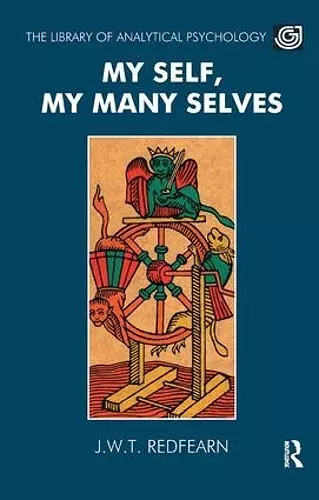My Self, My Many Selves
Format:Paperback
Publisher:Taylor & Francis Ltd
Published:31st Dec '94
Currently unavailable, and unfortunately no date known when it will be back
This paperback is available in another edition too:
- Hardback£125.00was £125.00(9780367104719)

'The concept of the "self" has remained puzzling and controversial. Indeed, far from gaining clarity, it seems to become ever more complex; for many different people, starting from different premises and having different goals have come to "appropriate" this term.'Joe Redfearn has made what seems to me to be a most valuable contribution by sticking firmly to an experiential approach. He has thought hard and deeply about the different ways in which we experience the "I" and drawn on his own "I" experience as well as on those of his patients and Jung himself.'He tells us in his introduction that the main aim of his book is to illustrate the migratory nature of the feeling of "I" and that the goal of analysis is to "facilitate and open up interaction and intercommunication between our various selves".'The origin of these many and varied selves tends to be named differently according to the school of discipline involved as, for instance "archetype", "complex", "internal Object", "part object", "interjected environmental personage", "part of body-image", "part-brain function" etc. In order to facilitate true observation and intercommunication, Joe Redfearn has given these different selves a generic, descriptive name; thinking of them as actors in a play he calls them "sub-personalities". This name allows us to speak to one another and know what we mean whatever our school of discipline, and yet we are left free to continue our search or research for the possible origins or roots of these sub-personalities.'- From the Foreword by Rosemary Gordon
The concept of the "self" has remained puzzling and controversial. Indeed , far from gaining clarity, it seems to become ever more complex; for many different people, starting from different premises and having different goals have com to "appropriate" this term.Joe Redfearn has made what seems to me to be a most valuable contribution by sticking firmly to an experiential approach. He has thought hard and deeply about the different ways in which we experience the "I" and drawn on his own "I" experience as well as on those of his patients and Jung himself.He tells us in his introduction that the main aim of his book is to illustrate the migratory nature of the feeling of "I" and that the goal of analysis is to "facilitate and open up interaction and intercommunication between our various selves".The origin of these many and varied selves tends to be named differently according to the school of discipline involved as, for instance "archetype", "complex", "internal Object", "part object", "interjected environmental personage", "part of body-image", "part-brain function" etc. In order to facilitate true observation and intercommunication, Joe Redfearn has given these different selves a generic, descriptive name; thinking of them as actors in a play he calls them "sub-personalities". This name allows us to speak to one another and know what we mean whatever our school of discipline, and yet we are left free to continue our search or research for the possible origins or roots of these sub-personalities.From the Foreword by Rosemary Gordon
ISBN: 9781855750821
Dimensions: unknown
Weight: unknown
156 pages